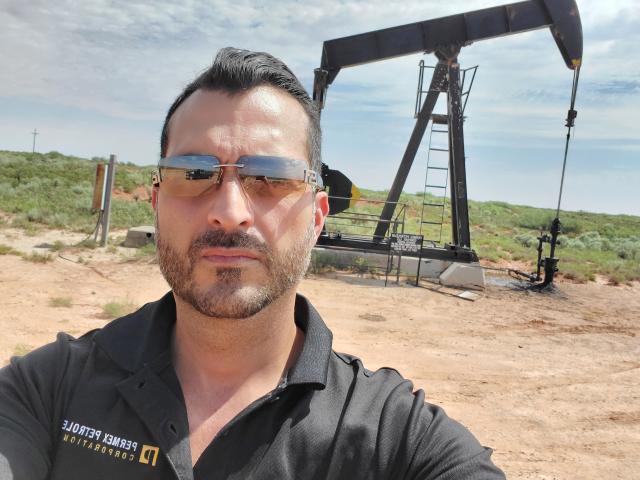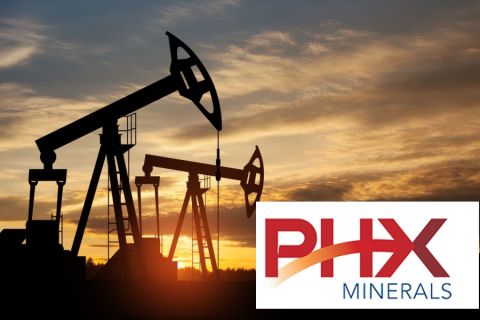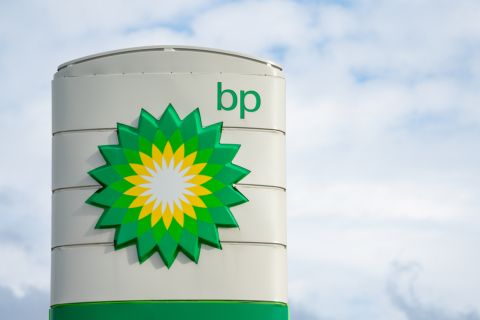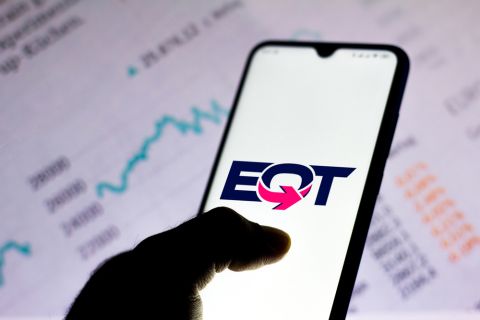
Presented by:
Mehran Ehsan is CEO of junior Permian Basin producer Permex Petroleum. As head of a company that operates on federal and state lands in West Texas and New Mexico, Ehsan brings a unique perspective to the direction of oil and gas in the age of energy transition. He recently talked with Hart Energy’s editorial director, Len Vermillion, to offer up his thoughts on the federal land bans, high oil prices, what the industry can due to mitigate flaring and more.
Len Vermillion: Tell me about you and your company and what I've read up is about the business model on low-cost producing oil and gas, and why are those important for the industry, the future? So just basically give me the basics of you and your company, if you can.
Mehran Ehsan: Permex Petroleum is a uniquely positioned junior oil and gas company.
We have assets and operations across the Permian Basin of West Texas, and the Delaware sub-basin of Southeast New Mexico.
The company does own and operate and is dually licensed in both states to operate on federal state and private land. Now, when I say we're a uniquely positioned company, honestly it stems from three fundamental core pillars. One is the timing we acquired our assets, the geography, and geology of the assets, and the structure of the company. All three of them extremely sound and that is why we believe we're uniquely positioned.
Now as far as low-cost production, given an environment where oil prices crashed--WTI prices historically did not go negative but recently did during the pandemic--it's very important for companies to operate with a low-margin operating cost, not only on a corporate level, but also from a field perspective. That's why we engage in areas and in methods that carry a low production cost. For instance, our cost to produce a barrel of oil is around $29.
And that is something we believe it's a necessity to survive because our industry goes through these cycles every eight years.
We do see crashes every eight years and if companies are not flexible enough to adjust based on their operation, they're not going to exist next round.
LV: Is that why you would say low-cost production is important for the industry? I guess that's the main reason. So, you're safe against the fluctuations of the industry at the price.
ME: Absolutely. Because again, this is the problem I always mention our industry is synonymous with borrowing. Whenever oil prices skyrocket, you will pull up balance sheets of junior oil and gas, mid and large caps. Their borrowing arm goes up significantly and they all know the crashes coming in the next six to eight years, the correction, and they just continue borrowing. By doing so, the costs go up and when you're not profitable as much when oil comes down to $45 to $50, they have to surface those notes. They just don't exist after that. Even large caps are noticing consolidate during this last COVID spike and Russian duel political issue.
LV: You operate on federal and state lands. Is there any concern with that going forward?
ME: We are. You got to look at it from the larger perspective, 28% of the United States is considered federal land for instance. When you look at states like Alaska, 60%, is federal. Nevada? 80% is federal. But does it impact us? Well, our Texas properties are not on federal land. That is where we do our fracking.
That is where produce the majority of our oil. The properties we own in New Mexico do fall under federal. Does it impact us? No, because we're not fracking. We're doing more conventional oil and gas production there versus shale production. Shale requires a lot of fracking, which is the bands currently exist on.
Overall as, as an individual, I think banning this is good and bad. It was a method to decrease carbon emissions in general. If you look at the economic costs, it's around $670 billion economic cost to the U.S. on this ban, which these could be going towards anything from education to infrastructure conservation. So, there's a lot of issues around this federal ban that we don't agree with.
LV: With the industry in transition, what would you say that it’s doing well and what not so much?
ME: Well there's multiple ways of looking at it. When you pull up all the large caps such as Baker Hughes, BP, Shell, they're all putting forward they want to be net zero by 2050. They bring various projects on board towards renewable. That's fantastic. Permex, the way we look at things is a little bit different.
LV: How so?
ME: Transition is good. Energy transition should happen. We all want a more environmentally friendly oil and gas industry. At the operational side, there's a lot we can do. Let me give you an example, 15% of global energy related greenhouse comes from the process of extraction of oil and gas within our sector. What we can do is eliminate routine flaring or venting CO2. This is something every company has to do. If anyone drives through Midland and goes to New Mexico, we see many companies flaring natural gas and various other H2S forms. These can be alleviated. There's no reason for us to transition to renewables as much as we can actually make oil and gas cleaner.
LV: Coming out of the last two years of COVID, things have changed. Has there been any change to the industry that you think will be long lasting going forward that have been any fundamental changes on how we operate or look at demand or anything like that?
ME: I think COVID-19, just keep in mind originally it had happened during what was the Saudi-Russian oil price war, which impacted and shattered prices to negative pricing and created global bankruptcies in consolidation across our industry.
We believe that companies are a bit more resilient now, shale producers in the U.S., if you haven't noticed this correction this might, they haven't opened up the taps. We're a bit more disciplined and that's the method we should move forward. Looking at Permex as a company, what we did during this time, we run a tight ship here. Not only did we survive this, one of the worst downturns within our sector.
We actually pursued some acquisitions. We believe in not letting a good disaster go to waste when prices crash like that and you don't carry any debt on the books. It's a great time for you to go out on behalf of your shareholders and pursue acquisitions. That's what we did.
LV: What about the current situation? We have sky-high prices or prices going up. We have a war in Ukraine as we speak today. How do you think all these things are going to affect the price direction in the industry going forward?
ME: Looking at where we stand and when I make a citation I'm discussing WTI prices, which is relevant to the United States market, not Brent.
If this war continues and it escalates, we can add an approximately 15% to 25% premium to where prices are today, bringing oil prices around $110 to $112 per barrel. That's not good for anyone.
On the flip side of it. If it deescalates, we think the prices will drop to around $75, which is quite healthy for the oil and gas sector.
Overall I don't think high oil price is something anyone in our industry should want. Over the long run, it creates inflation. It spikes across the board all businesses, all sectors will pass all the costs to consumers and that will just hurt the economies around.
Recommended Reading
SLB’s ChampionX Acquisition Key to Production Recovery Market
2024-04-19 - During a quarterly earnings call, SLB CEO Olivier Le Peuch highlighted the production recovery market as a key part of the company’s growth strategy.
PHX Minerals’ Borrowing Base Reaffirmed
2024-04-19 - PHX Minerals said the company’s credit facility was extended through Sept. 1, 2028.
BP Restructures, Reduces Executive Team to 10
2024-04-18 - BP said the organizational changes will reduce duplication and reporting line complexity.
Matador Resources Announces Quarterly Cash Dividend
2024-04-18 - Matador Resources’ dividend is payable on June 7 to shareholders of record by May 17.
EQT Declares Quarterly Dividend
2024-04-18 - EQT Corp.’s dividend is payable June 1 to shareholders of record by May 8.






